Research
Table Of Contents
Area Of Expertise
ML, Deep Learning, Generative AI, & Data Science for Health, Clinical, & Life Science Research.
- Digital Biology: Generative biology, In Silico Discovery, Biomolecular Modeling, etc.
- Analytical AI: Predictive Modeling, Agentic-AI, Knowledge Graphs, etc.
- Information Extraction: NLP, LLMs, Explainable AI, etc.
The majority of my research (from 2018-2024) is done as part of innovation for Elsevier & Zifo. Before 2017, the research was done in academic and as part of non-profit research institutes and is available on my Google Scholar
Digital Biology
From 2023, my team focuses on the convergence of computational biology, data science, and bioengineering, particularly applying biomolecular machine learning models to protein engineering and therapeutic design. The objective is to investigate the underlying design principles governing protein structure and function, leveraging these insights to generate novel molecules, including peptides and antibody fragments, with optimized therapeutic properties.
The recent work from my group demonstrated the efficacy of a generative adversarial network (GAN) architecture, wherein a discriminator and generator are jointly trained to model the sequence-function landscape of anti-cancer peptides. This approach enables the de novo synthesis of candidate peptides exhibiting in silico predicted anti-cancer activity. This research contributes to the rapidly developing field of generative biologics, which integrates foundational biomolecular modeling with high-throughput robotic synthesis and screening to accelerate the discovery of therapeutic candidates. I presented our findings at the Pistoia Alliance (2024) meeting of biopharma executives.
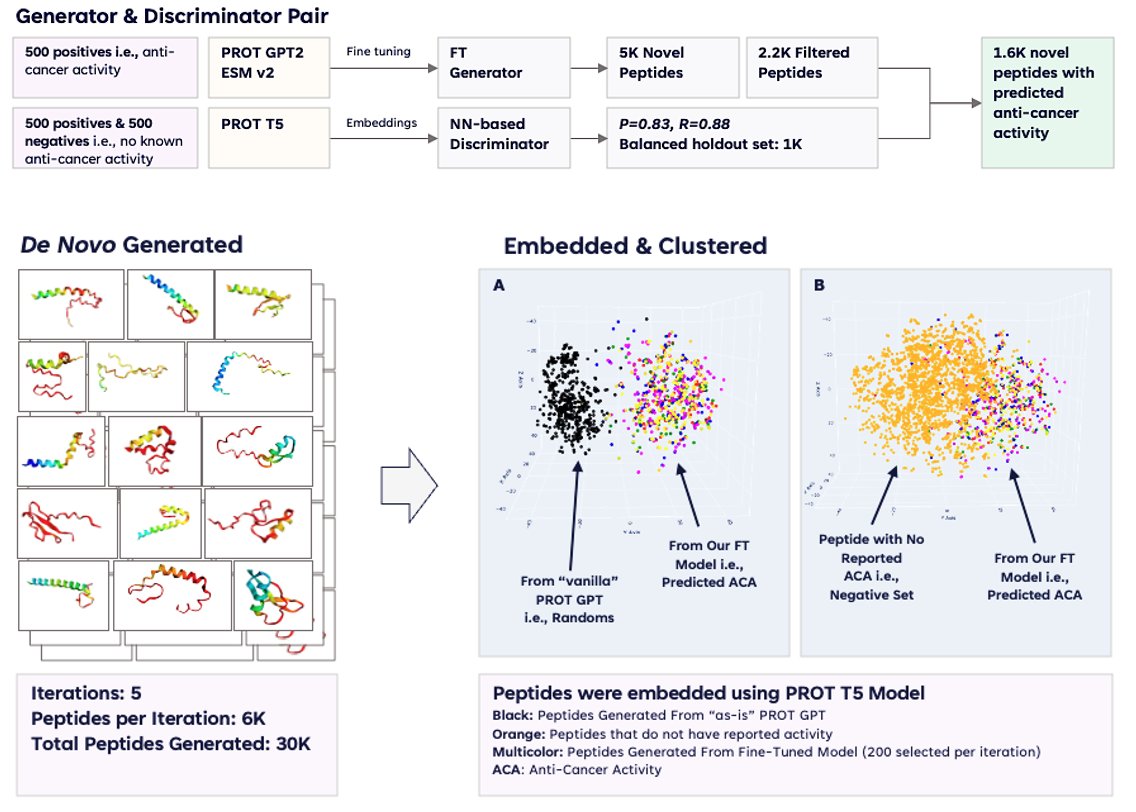
Extending on our “generative biologics” work, we are exploring methods to design new drug candidates computationally, speeding up the drug discovery process. We focus on protein and chemical structure to improve virtual screening and create entirely new molecules.
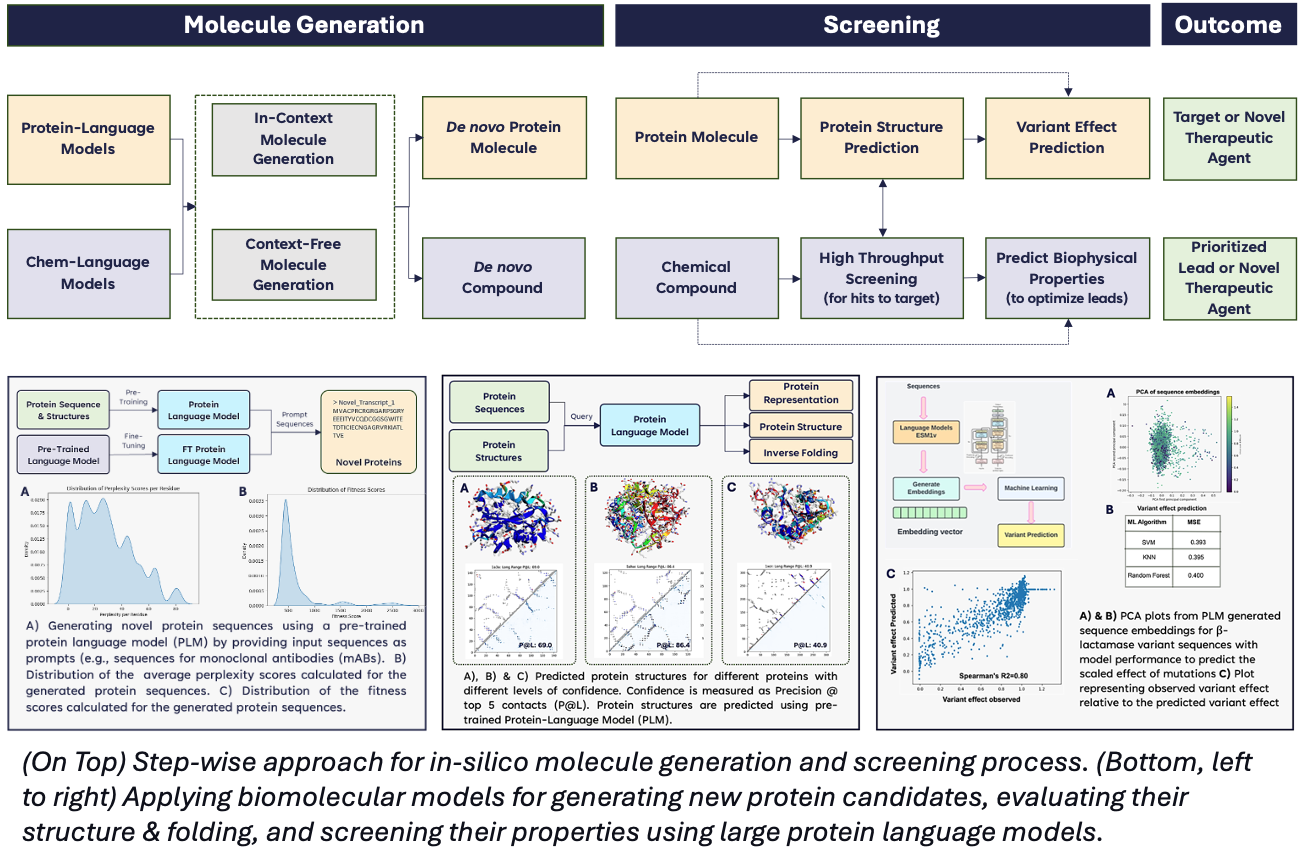
Analytical AI
My work on predictive modeling, decision science, and insights extraction focuses on improving health outcomes and operational efficiencies in large enterprises and manufacturing setups. I ( and my team members) build autonomous AI-based systems to diagnose patient conditions, predict drug safety events, and monitor health risks.
Here is a snippet from my work on differential diagnosis for patients (at Elsevier). The AI-based systems predict the conditions (including rare diseases ) based on patient health history with reasonable confidence.
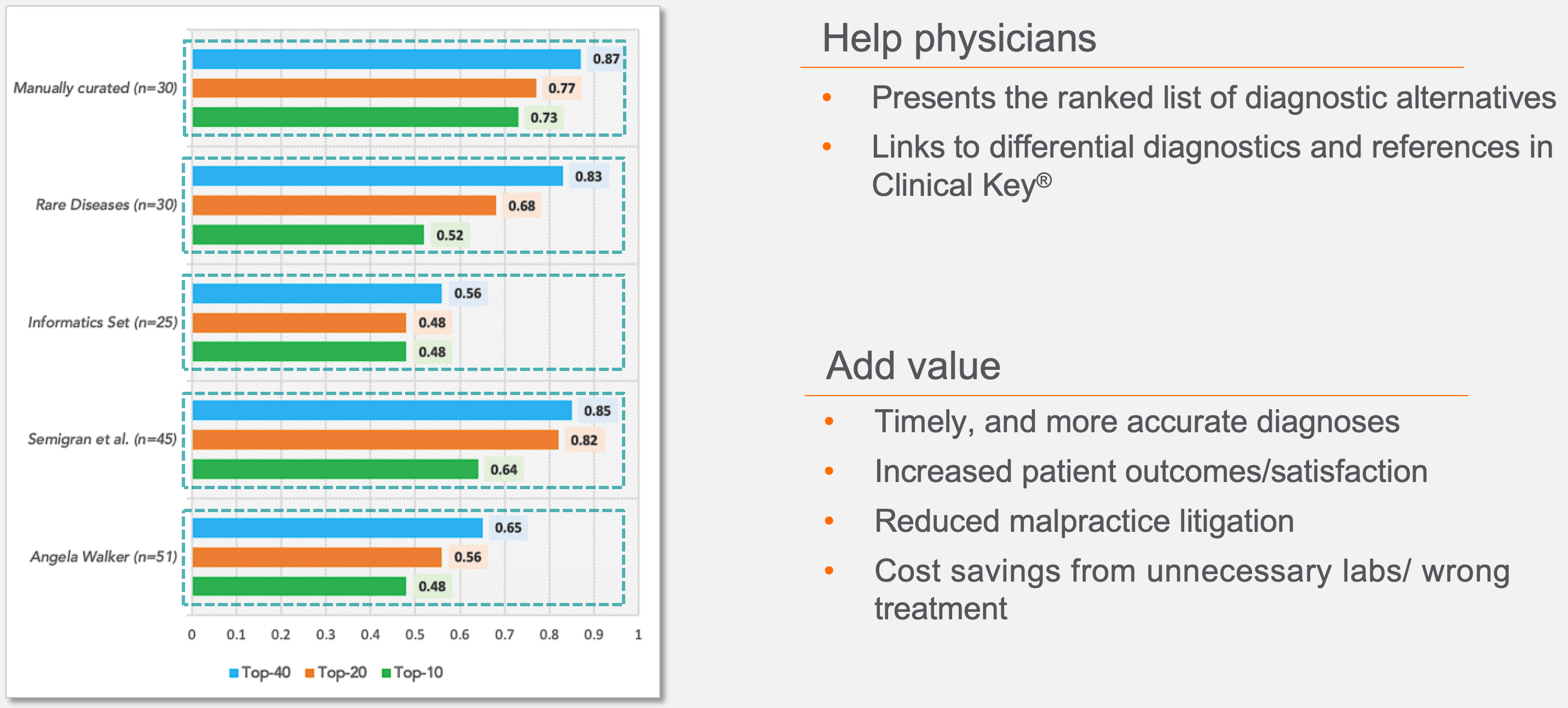
Here is a snippet from my work (done in 2021 for Elsevier) to predict drug safety events for patients based on their health records. ML algorithms used here were selected to maximize the explainability for regulatory compliance i.e. we chose simpler algorithms to maximize trustworthiness of decisions.
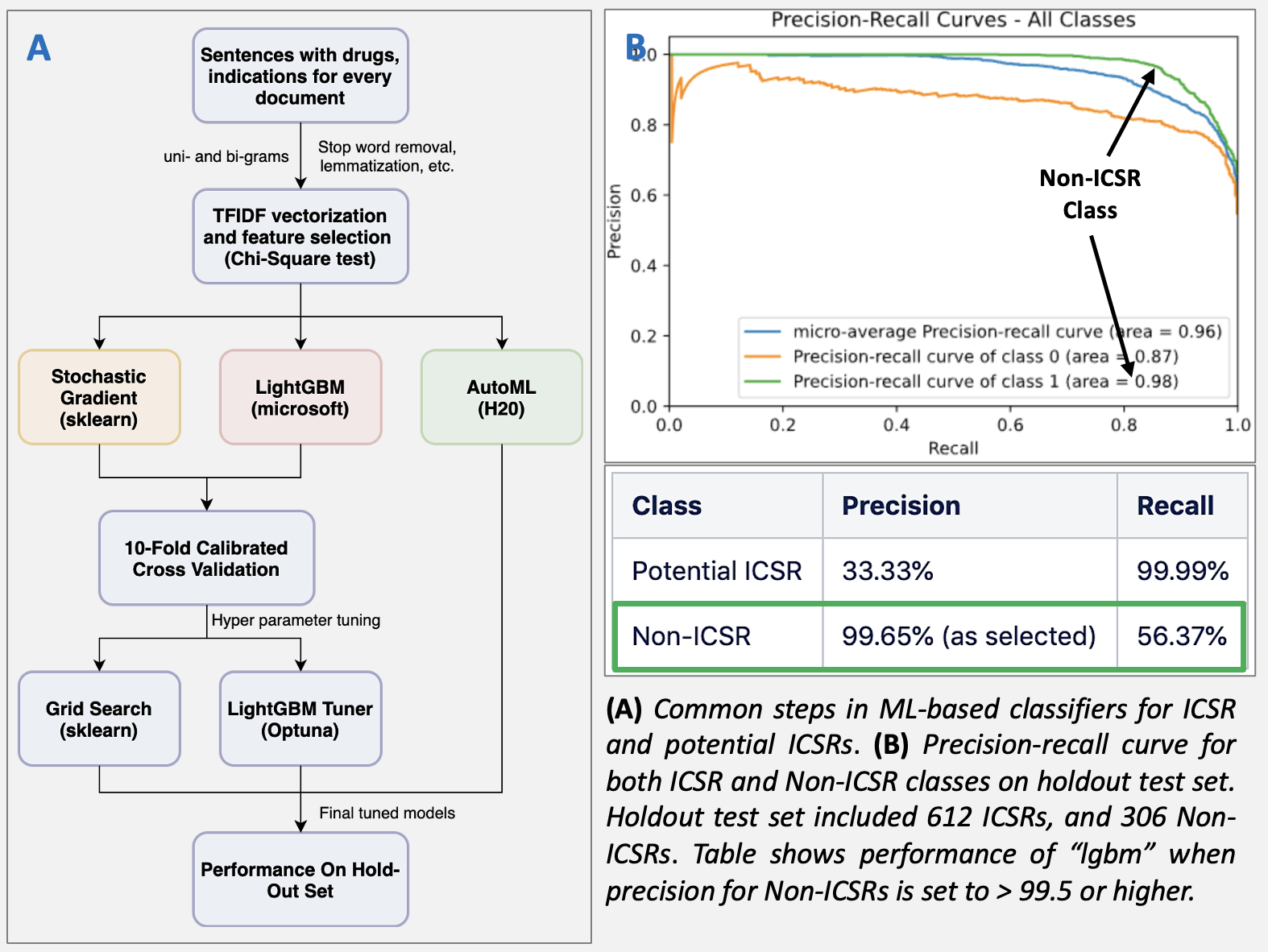
We extend the principles of human health to process monitoring and recommendations, such as monitoring real-time sensor data from manufacturing plants for predictive maintenance and process optimization. In the example below, we apply LLMs and analytical models to stratify support tickets and assign them the correct categories and priority revelations to help achieve greater operation efficiencies for large organizations.
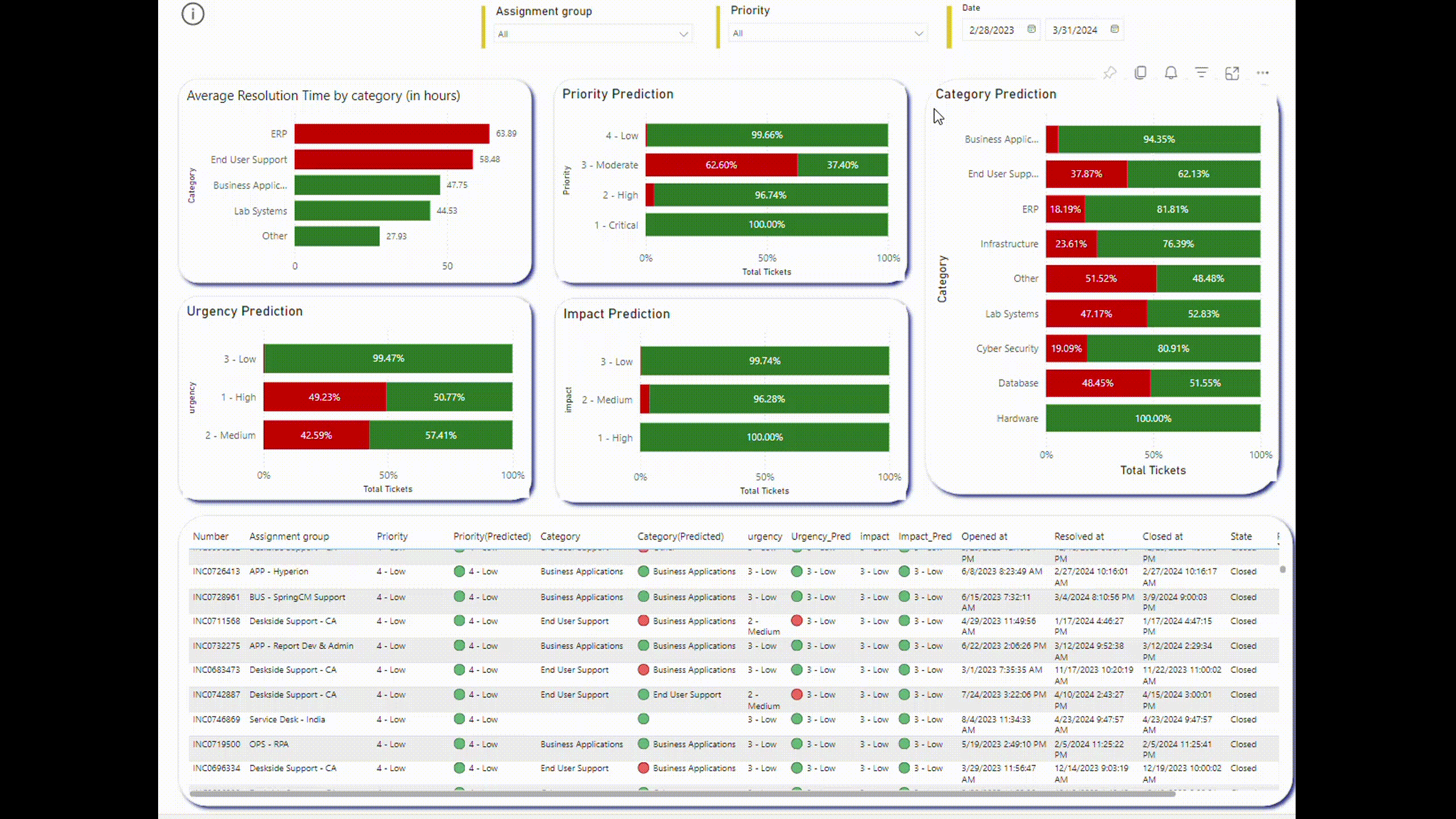
NLP & Language Modeling
To Add Here
